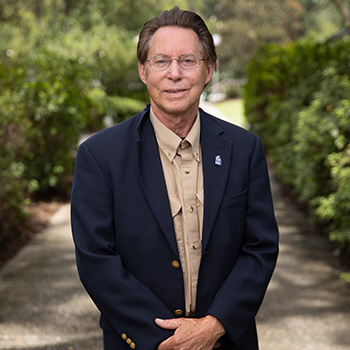
Stanley Harper
Operations Services, Navy Exchange
By day, Stanley Harper works in Operations Services at the Navy Exchange, while serving as a marketing consultant for the Japanese American Society of Northwest Florida. Additionally, he serves as a business advisor for the Consulate General Japan, as an economic development consultant for the Japan External Trade Organization and a technology consultant for Top Echelon. Even with a jam-packed schedule, Harper doesn’t let his influence stop there. He has dedicated over two decades to lobbying Congress on behalf of the American Diabetes Association and those it represents. His tireless efforts recently earned him the title of a “top influencer” within the organization.
Congratulations on becoming named as a top influencer by the American Diabetes Association. Can you tell me what you will be doing in this new role and how you achieved this status?
It is a great honor to be chosen to be part of this National Elite Group of professional influencers. The American Diabetes Association Inc. has always been known for their strong lobbying efforts around the country. In my past advocacy role with the ADA, I was mainly involved with writing letters to members of Congress and running the halls of Congress to push for bill support, and meeting with the diabetes community about their support needs. Now, I will be pulled from this group to testify, submit op-eds and sit on panels. I will also have regular calls with members of Congress, state legislatures, governors' offices and their advisors, who are making the policy decisions that affect research funding, health insurance coverage, cost of drugs and medical devices, and the other vital considerations for the ADA. I have been able to gain support from Capitol Hill since 1984 for the increase of funding to the National Institute of Health and Centers for Disease Controls budgets for education and research. Over this past five years I have been able to bring in top technology leaders and assist with funding for medical advancements for diabetes, cancer, and heart disease which I have hosted at UWF, with such tech leaders and researchers as Girish Wable, at Jabil, the largest manufacturing solutions provider in the world, and Dr. Zhen Gu, Bio and Nano Researcher at UCLA. This leadership has really propelled me to this achievement over the years.
How have you helped the ADA amid the COVID-19 pandemic?
I have been involved in several areas making sure the at-high-risk populations were able to receive medications and food for their special diets and treatments when needed during the pandemic, and working virtually with congressional leaders for stimulus funds to include those affected by diabetes. I have also been working with manufacturers such as Fictiv, Jabil and others for personal protective equipment materials and supplies for healthcare professionals that are treating diabetics around the country. Additionally, I was able to get 3D materials donated from a company to assist UWF Sea3D Lab with face shield supplies in order to allow UWF to keep 3D-printed face shields for our regional healthcare professionals.
How has your degree in communication helped you in your career and with your ADA advocacy work?
When I graduated from UWF in ’84, I was able to put my communications degree to work right away. My professor, Dr. Towns, who encouraged me to accept a board position with the International Association of Business Communicators, also felt I could make a big difference with diabetes with my knowledge and volunteer work with the ADA at the time as the healthcare marketplace was rapidly changing. The ADA, in March 1984, started their first Youth Leadership Congress, where they were seeking representatives for each state to meet in Washington D.C. With support from several community patient educators at Baptist Healthcare and West Florida Hospital, I decided to apply and represent Florida at the First National Youth Leadership Congress. This was my beginning and my footstep in lobbying on Capitol Hill, and I haven’t stopped since then.


